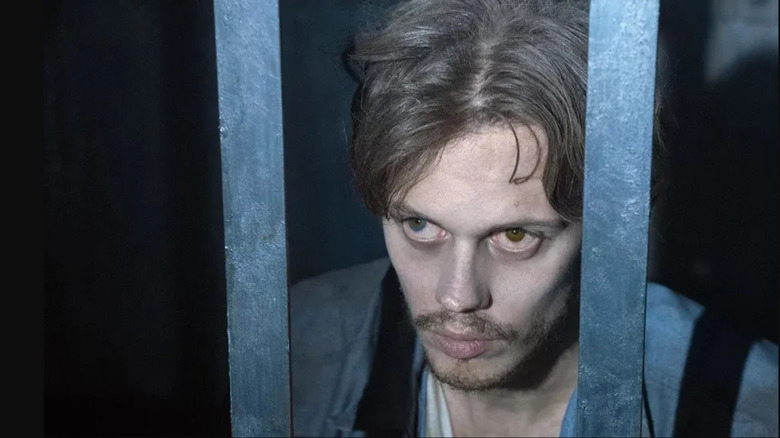
All good things must come to an end, but how soon is too soon? In the case of "Castle Rock," many viewers felt that the show's cancellation after season 2 was premature. The Hulu series was based on horror master Stephen King's expansive body of work, and although the show ended by tying up some major loose ends, fans were left wanting more. The ambiguity of the first season's finale, coupled with some of the more interesting subplots and supernatural aspects presented throughout its brief run, left more than enough room to allow for additional material in season 3.
Let's take a look at what a future with more "Castle Rock" could have looked like.
Exploring Alternate Realities
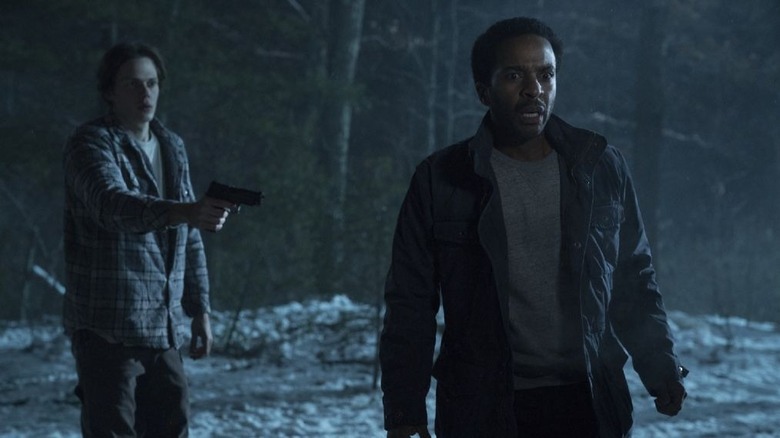
The first season of "Castle Rock" was ahead of its time when it comes to incorporating multiverse theory. Episode 9, "Henry Deaver," revealed that multiple alternate universes and realities converge in the fictional Maine woodland town thanks to the fact that Castle Lake actually has an interdimensional portal in the woods. This portal could have easily opened up the door (literally and figuratively) for more of King's characters and stories to be added to the complex tapestry of murder, mayhem, and mystery that made up "Castle Rock."
Within just two seasons, the series managed to combine elements from some of King's best-known works, including "Misery," 'Salem's Lot," and "The Shawshank Redemption," into an interconnected suspenseful horror-thriller. While many believe that Hulu cancelled the series partially because execs didn't want to rehash the Stephen King stories that have already been adapted several times over, this argument falls apart when you consider that King has written over 200 short stories and 64 novels over the course of his career, with no signs of slowing down any time soon. There's really no shortage of source material to draw inspiration from, especially since the writers already had no problem creating interesting new characters and storylines for the first two seasons of "Castle Rock."
In comparison, Marvel's success with exploring alternate realities in both the "What If...?" series and "Loki" proves that dedicated fans are always down to see the characters they know and love revisited in new and exciting ways. It's like officially sanctioned fan fiction with endless possibilities.
More Mainstream King
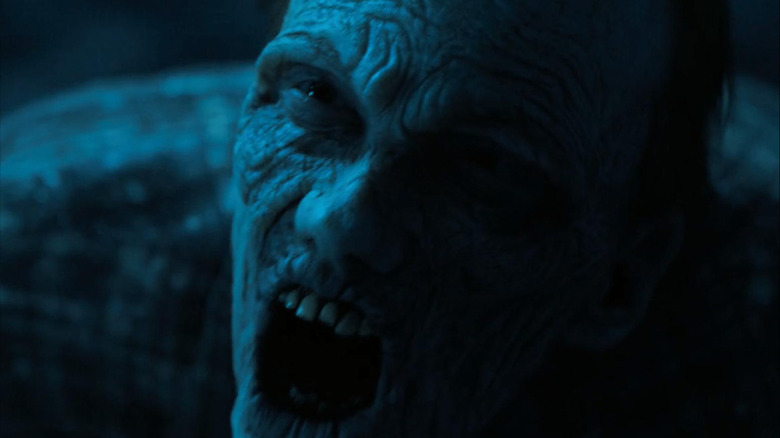
Sure, even the most casual King readers and audiences can recognize "It," "The Shining," and "Carrie," but what about the stories and characters that may only be known amongst some of King's more dedicated fanbase? Due to the inclusion of the multiverse theory, and the fact that the first two seasons of "Castle Rock" had already taken a lot of creative liberties with King's work, there was an opportunity to bring some of the horror master's lesser-known short stories into the mainstream.
For instance, King's short story "Everything's Eventual" practically begs for a TV adaptation, and "Castle Rock" could have been the perfect vehicle.
In "Everything's Eventual," the main character Dinky Earnshaw has the power to do away with people by drawing strange symbols. He doesn't have to know his victims or even be in the same room as them in order to assert his psychic influence over them, driving them to meet untimely ends by suicide. Even if "Castle Rock" didn't include Dinky himself, the show could have easily introduced characters with similar powers, as the story later reveals that Dinky is not the only one with this peculiar gift — or curse, depending on how you look at it.
While this particular story never made it into "Castle Rock" before its untimely end, there were plenty of familiar characters and connections to some of King's other works tied into the tv series.
More Origin Stories
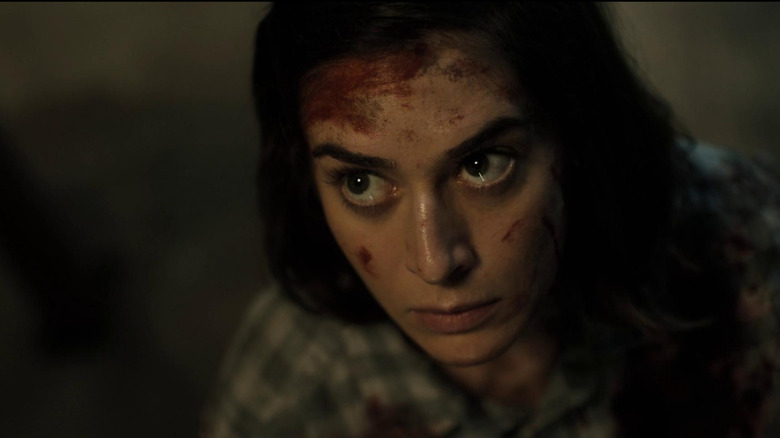
Season 2 of "Castle Rock" introduced viewers to a younger version of Annie Wilkes (Lizzy Caplan), the obsessive caretaker from King's novel "Misery." Here, viewers were treated to an origin story involving Annie's struggle to control her homicidal psychosis by stealing antipsychotic drugs, stoking the flames of a family feud until it erupts into a deadly, small-town civil war, and doing her best to raise her teenage daughter.
Unfortunately, Annie is as terrible a mom as she is a nurse, and even though those of us who have seen and/or read "Misery" know how her story ends, it was still fascinating to see her journey towards becoming the type of lunatic who will happily imprison and torture unlucky writers even as she refuses to utter curse words. Ultimately, people love a good origin story, and a third season of "Castle Rock" could have really leaned into this by shining a light on the previously unknown origins and backstories of some of King's other characters.
For example, season 2 brings Jerusalem's Lot, the town that becomes overrun by vampires in King's novel "'Salem's Lot." In the novel, a vampire by the name of Kurt Barlow moves into town and ultimately infects the citizens with vampirism. His lone connection to the town is his correspondence with the late Hubie Marsten, who made the Marsten House an infamous landmark after he murdered his wife and then himself at the residence. The Marsten House makes an appearance in "Castle Rock," and its inclusion could have opened the door for viewers to learn more about Hubie Marsten, Kurt Barlow, or just the existence of vampires in the "Castle Rock" universe.
Where Is Henry Deaver?
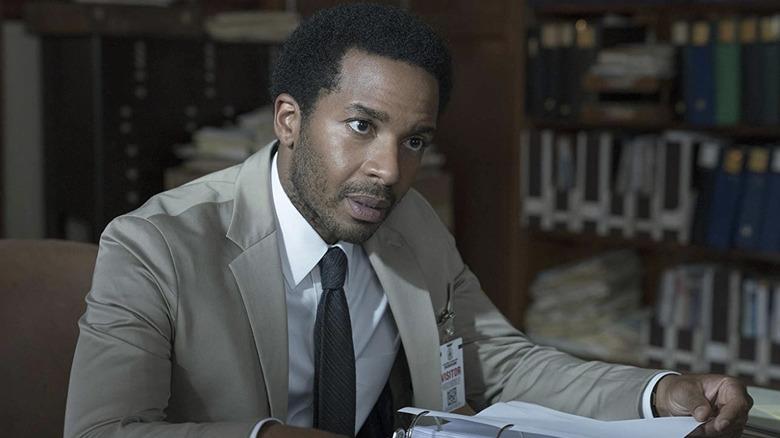
Even if "Castle Rock" didn't continue adding entirely new threads to its narrative web of creepy chaos, there was still potential to do more with the characters that viewers had already come to know throughout the series.
For instance, Henry Deaver (André Holland), the primary protagonist of season 1, went missing; however, the show ended before audiences learned why or where he is. Did he release the mysterious prisoner known as The Kid (Bill Skarsgård) and skip town? Has he gone to another dimension? Is he even alive? We really don't know. In theory, he could have been convinced to release The Kid at some point, especially given the horrible way the people of the town regarded him after the death of his father when he was a child. Jackie Torrance (Jane Levy) even informs him that children used to dress up as him for Halloween, complete with blackface.
Despite the fact that Castle Rock was his childhood hometown, the unfortunate circumstances of his adoptive father's death — not to mention the unspoken racial tension that seems to plague the town — made it so that he was always treated like an outsider. It probably didn't help that his own adoptive mother, though she was suffering the unfortunate effects of Alzheimer's, didn't initially recognize him upon his return to the cursed New England town, mistaking him for the help while assuring him that she wasn't racist because she adopted a Black child.
Even though Henry seems like a pretty good person, who's to say he didn't eventually become tired of the way he was treated by the other citizens of Castle Rock, making it that much easier for The Kid to convince him to help unleash the ultimate chaos on the town, perhaps framing it as divine retribution to appeal to Henry's faith. This is pure speculation, of course, but given the fact that The Kid smiles after Henry decides to keep him imprisoned at the end of season 1, perhaps this is because he was planning to use Henry as an instrument in some horrific plot all along.
Who Is The Kid?
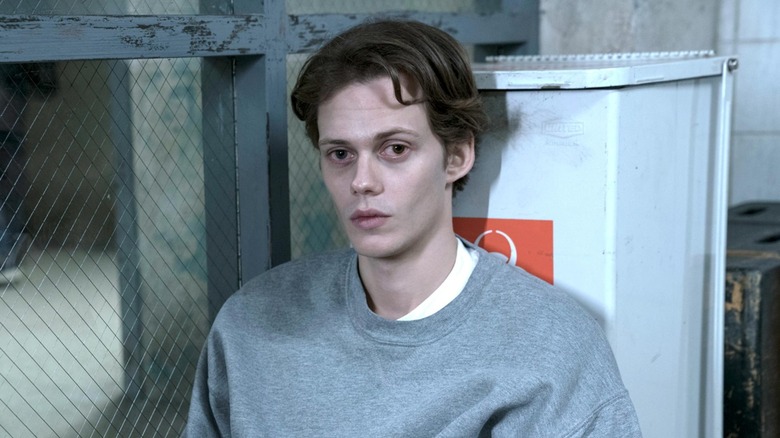
Speaking of The Kid, season 1 of "Castle Rock" ends with Henry Deaver resolving to keep the otherworldly creep imprisoned, implying that he ultimately comes to believe The Kid may actually be the devil — or some other sinister supernatural entity.
The main question viewers of the series are left with is, well, who the hell is he? In season 1, episode 9 of "Castle Rock," we're shown an alternate reality in which The Kid is actually the biological son of Ruth and Matthew Deaver, meaning that he is the Henry Deaver of a reality where the couple was able to conceive and therefore never adopted the Henry Deaver of the primary reality the series takes place in. In season 2, viewers learn that The Kid is actually much older than we could have imagined, with his sinister manipulation of the people of Jerusalem's Lot and Castle Rock dating back at least 400 years. Given this revelation, we're also left to wonder if the alternate reality featuring The Kid as another version of Henry Deaver was completely made up, and if so, why? If not, why are they identical? Is it just supernatural trickery, or more complex multiverse shenanigans?
While season 2 does answer the question of whether or not The Kid is evil, confirming that he's definitely not good or even human, we don't learn what it will take to finally and truly defeat him. We could have had an entire season dedicated to unveiling The Kid's identity, ending with an epic showdown of good vs evil. Instead, we're just left disappointed and thinking about what could have been if only "Castle Rock" hadn't been canceled.
Molly Strand And Jackie Torrance
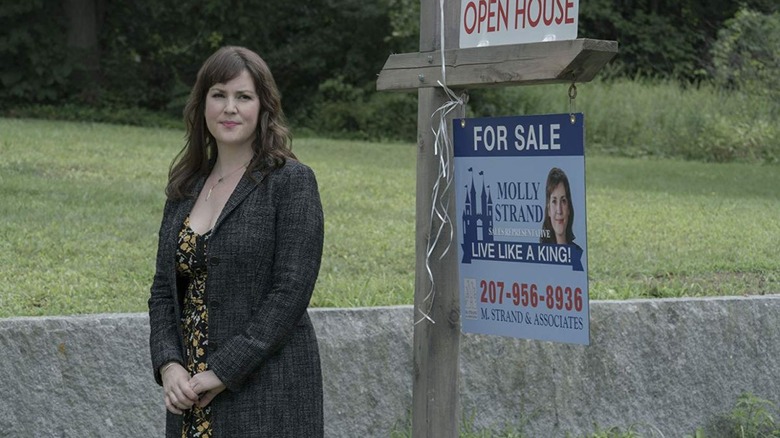
Another "Castle Rock" character with a lot of wasted storytelling potential is Molly Strand (Melanie Lynskey), the sweet psychic from season 1 who gobbled oxytocin like candy to cope with the maddening weight of her supernatural abilities. Although she gets a relatively happy ending, trading the dreariness of Castle Rock for the subtropical splendor of the Florida Keys, she was arguably one of the series' most interesting characters. If the show had continued, perhaps Molly (Melanie Lynskey) would have returned to her ever-afflicted hometown after catching wind of Henry's disappearance. She'd already killed for the guy, so to say the two shared a special connection strong enough to make her go back to Castle Rock isn't out of the realm of possibility.
There's also the character Jackie Torrance, who had a direct connection to King's novel "The Shining" as she was the niece of the late Jack Torrance — you know, the guy who was driven to insanity and tried to murder his wife and son during their terrible time at the haunted Overlook Hotel. Jackie's fascination with Castle Rock's morbid history, as well as her willingness to point out her blood relation to Jack Torrance like some macabre badge of honor, could have easily landed her in all sorts of supernatural hijinx that could have been explored in future seasons of "Castle Rock," making the series cancellation sting even more.
Still, there's good news for fans of "Castle Rock" who are still grieving the show's untimely end. While the series remains canceled, there's another TV adaptation of King's work on the horizon: an "It" prequel series entitled "Welcome to Derry." While the show is reportedly still in the early stages of development, there's a chance we could be seeing more of Bill Skarsgård being an unsettling weirdo who carries out devious deeds in small towns if he reprises his role as Pennywise for the upcoming HBO Max series.
Read this next: The Horror Movies We Can't Wait To See In 2022
The post The Missed Opportunities Of Castle Rock appeared first on /Film.
0 Commentaires